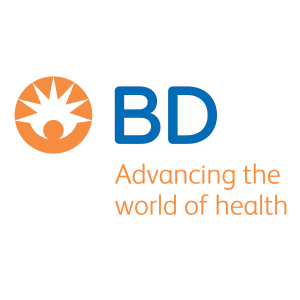
Scientists from Intermountain Healthcare & Iceland-Based deCODE Discover Genetic Underpinnings of Vertigo as Part of Global HerediGene Population Study
October 21, 2021
Scientists in the United States and Iceland who are collecting and studying DNA as part of the HerediGene: Population Study, the world’s largest DNA mapping initiative, have discovered the genetic underpinnings of vertigo, a condition that creates a sense of dizziness and causes balance problems for nearly 40 percent of Americans at some point in their life.
Vertigo is a leading cause of falls for Americans and results in tens of thousands of emergency department visits each year.
Scientists from Utah-based Intermountain Healthcare and deCODE genetics, a subsidiary of the biopharmaceutical company, Amgen, based in Reykjavik, Iceland, discovered six common genetic variants associated with vertigo.
Results of the findings are reported in the scientific journal, Communications Biology, a publication of Nature.
“We haven’t had a clear explanation of the genetic basis of vertigo, so this is a very significant finding,” said Lincoln Nadauld, MD, PhD, one of the study’s authors and vice president and chief of precision health and academics for Intermountain Healthcare.
“Vertigo is one of the leading causes of emergency room visits across our health system. This discovery means we now have a much better understanding for why portions of our population experience these symptoms.” Dr. Nadauld added. “Now, scientists all over the world can read about this discovery and develop tests and medicines to help patients – thanks in part to our HerediGene study participants.”
For the study, scientists examined nearly 50,000 DNA samples against more than 894,500 controlled samples to discover six common genetic variants (genes ZNF91, OTOP1, OTOG, OTOGL, TECTA, and ARMC9) associated with vertigo.
“Our study revealed sequence variants in genes that may contribute to the pathogenesis of diseases in either the auditory system or vestibular (sensory) system and thus, further our understanding of the biological underpinnings of these two systems,” the investigators report.
In addition to the six vertigo associations, investigators reported eight vertigo associations with sequence variants that have previously been associated with age-related hearing impairment and motion sickness. However, they did not detect a significant correlation between the effect estimates of vertigo and those two phenotypes.
“Although disorders of the auditory and the vestibular system may co-occur, none of the six genome-wide significant vertigo variants were associated with hearing loss and only one was associated with age-related hearing impairment,” the scientists noted.
Vertigo, dizziness, and balance-related conditions are among the most common health problems in adults. It’s estimated that nearly 40 percent of all adults in the U.S. experience vertigo at least once in their lifetime, with women slightly more likely to get it than men.
The HerediGene: Population Study was launched by Intermountain and Amgen through its subsidiary, deCODE genetics, in 2019 as a major global collaboration and study focused on discovering new connections between genetics and human disease involving the collection of a more than a half million DNA samples from people in Utah and Idaho.
Read the full article here.
Recent News
- Intermountain Health Announces New Children’s Health President and Expands Leadership Role for Hospital President to Build on Legacy of Pediatric Excellence
- Seek Labs Unveils BioSeeker™
- Merit Medical Launches the Prelude Wave Hydrophilic Sheath Introducer with SnapFix Technology
- Purgo Scientific Appoints Veteran MedTech Leader as Chief Executive Officer
- Quansys Biosciences Launches Q-View™ Imager Plus: Delivering Reproducible, high-impact ELISA Data with Ease
- Improving Women’s Health: MobileODT Joins Liger Medical










